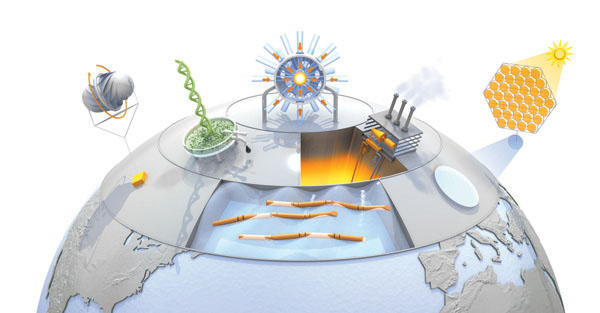Over the past 50+ years there have been regular announcements of limitless affordable energy soon becoming available, such as Paul Krugman’s recent article “Here comes Solar”, with the consequences of that happening never getting discussed. The following is as posted to the more cautions Washington Post article yesterday 11/12/11.
One of the most overlooked drawbacks of creating affordable and plentiful solar energy, or ANY other form of energy, is what we’d do with it, the consequences of mankind having access to continually doubling amounts of energy. What if the improbable “cheap energy” solution were actually discovered?

Energy is far from our only constraint on economic growth. Energy is actually what let us do the destruction of our environment as we have already done, none of which yet result from the CO2 and other GHG’s. Because we are already at the destructive threshold of many other environmental impact pressures we could expect growing energy use to cause even faster growing impact repercussions than we’ve experienced. They will not come with a neat technological fixes, either.
The core unrecognized problem is that growth is a construction process. It’s a mechanism for using the profits of a system to build a bigger and bigger system. That involves our using our (limited imagination) to take ever expanding control of our environment to do ever more things to our environment.
As growth begins as a process of constructing a new system its first steps make every step easier and then at it exhausts those hidden potentials in its environment it does the reverse. As a growing system starts confronting more and more problems with expanding its use of its environment, each problem solved causes growing waves of new unsolved problems. That’s why we feel “this is snowballing”, because having our solutions multiply our problems is physically what’s happening to us.
The basic systems physics of it is that our self-construction process is like every other in nature in many ways. It began with using profits to build the process, causing an explosion of new uses for resources that became ever cheaper and more plentiful, as we used them up ever faster. That’s what reverses as a signal of the system beginning to meet its growth limits, replacements for things you use up becoming ever more costly rather than cheaper.
To keep the system profitable when that happens one needs to reverse the investment principle being used. Keynes was actually the first to recognize that principle, discussed in his parable of “the widows cup [or ‘cruse’]” and in Chapter 16 of The General Theory.
After a period of growth becoming ever easier, following the principle of using profits to expand the system for making a profit, complications with growth begin to multiply toward making the system as a whole unprofitable. It then drives itself bankrupt unless the investment principle reverses, and profits are earned for spending on other values instead. Those are elemental certainties for environmental systems with accountable parts, like energy and money, and will not change.
